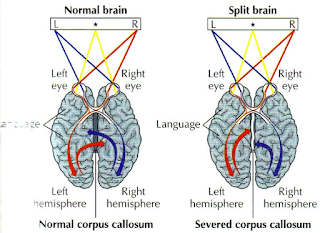Wednesday, November 7, 2018
Monday, November 5, 2018
Skeleton Files
Posted on Monday, November 05, 2018by Ronald C Titus, M.Ed. with No comments
Monday, October 29, 2018
Ebbinghaus’ forgetting curve (learning curve)
Posted on Monday, October 29, 2018by Ronald C Titus, M.Ed. with No comments
Tuesday, October 23, 2018
Feats of memory anyone can do | Joshua Foer
Posted on Tuesday, October 23, 2018by Ronald C Titus, M.Ed. with No comments
Thursday, October 18, 2018
Memorizing Presidents
Posted on Thursday, October 18, 2018by Ronald C Titus, M.Ed. with No comments
Tuesday, October 16, 2018
The Memory Palace
Posted on Tuesday, October 16, 2018by Ronald C Titus, M.Ed. with No comments
Brain-based Learning - Teaching Self-Regulation in the Early Grades
Posted on Tuesday, October 16, 2018by Ronald C Titus, M.Ed. with No comments
Activating young students' natural bodily rhythms helps them regulate their nervous systems and prepare for learning. (Incorporates rhythmic movement)
Howard Gardner's Theory of Multiple Intelligences
Posted on Tuesday, October 16, 2018by Ronald C Titus, M.Ed. with No comments
The theory of multiple intelligences challenges the idea of a single IQ, where human beings have one central "computer" where intelligence is housed. Howard Gardner, the Harvard professor who originally proposed the theory, says that there are multiple types of human intelligence, each representing different ways of processing information:
- Verbal-linguistic intelligence refers to an individual's ability to analyze information and produce work that involves oral and written language, such as speeches, books, and emails.
- Logical-mathematical intelligence describes the ability to develop equations and proofs, make calculations, and solve abstract problems.
- Visual-spatial intelligence allows people to comprehend maps and other types of graphical information.
- Musical intelligence enables individuals to produce and make meaning of different types of sound.
- Naturalistic intelligence refers to the ability to identify and distinguish among different types of plants, animals, and weather formations found in the natural world.
- Bodily-kinesthetic intelligence entails using one's own body to create products or solve problems.
- Interpersonal intelligence reflects an ability to recognize and understand other people's moods, desires, motivations, and intentions.
- Intrapersonal intelligence refers to people's ability to recognize and assess those same characteristics within themselves.
Multiple Intelligences Self-Assessment
Posted on Tuesday, October 16, 2018by Ronald C Titus, M.Ed. with No comments
Tuesday, October 9, 2018
Conformity - Brain Games - Bell Standing
Posted on Tuesday, October 09, 2018by Ronald C Titus, M.Ed. with No comments
Conformity - Candid Camera Elevator
Posted on Tuesday, October 09, 2018by Ronald C Titus, M.Ed. with No comments
Tuesday, October 2, 2018
Mouse Party
Posted on Tuesday, October 02, 2018by Ronald C Titus, M.Ed. with No comments
The Science of Hypnosis
Posted on Tuesday, October 02, 2018by Ronald C Titus, M.Ed. with No comments
The Science of Addiction: Genetics and the Brain
Posted on Tuesday, October 02, 2018by Ronald C Titus, M.Ed. with No comments
5 Stages of Sleep
Posted on Tuesday, October 02, 2018by Ronald C Titus, M.Ed. with No comments
Monday, October 1, 2018
Napping for Maximum Productivity
Posted on Monday, October 01, 2018by Ronald C Titus, M.Ed. with No comments
Why You Need Sleep
Posted on Monday, October 01, 2018by Ronald C Titus, M.Ed. with No comments
Sleep Smarter, Not Longer
Posted on Monday, October 01, 2018by Ronald C Titus, M.Ed. with No comments
Stages of Sleep
Posted on Monday, October 01, 2018by Ronald C Titus, M.Ed. with No comments
Thursday, September 27, 2018
Sensory Receptors Path to Brain
Posted on Thursday, September 27, 2018by Ronald C Titus, M.Ed. with No comments
Wednesday, September 26, 2018
Brain Function and Physiology
Posted on Wednesday, September 26, 2018by Ronald C Titus, M.Ed. with No comments
Monday, September 24, 2018
Figure-ground
Posted on Monday, September 24, 2018by Ronald C Titus, M.Ed. with No comments
Eye Anatomy
Posted on Monday, September 24, 2018by Ronald C Titus, M.Ed. with No comments
Ear Anatomy
Posted on Monday, September 24, 2018by Ronald C Titus, M.Ed. with No comments
Wednesday, September 12, 2018
Split Brain
Posted on Wednesday, September 12, 2018by Ronald C Titus, M.Ed. with No comments
Brain Lobes
Posted on Wednesday, September 12, 2018by Ronald C Titus, M.Ed. with No comments
Left Right Brain Characteristics
Posted on Wednesday, September 12, 2018by Ronald C Titus, M.Ed. with No comments
Brain Structure Map
Posted on Wednesday, September 12, 2018by Ronald C Titus, M.Ed. with No comments
Brain Function Map
Posted on Wednesday, September 12, 2018by Ronald C Titus, M.Ed. with No comments
Thursday, August 16, 2018
Gestalt & the Bio-Psycho-Social Approach
Posted on Thursday, August 16, 2018by Ronald C Titus, M.Ed. with No comments
Psychology: the science of mind and behavior.
(Gestalt psychology)
Gestalt psychology or gestaltism is a philosophy of mind of the Berlin School of experimental psychology. Gestalt psychology is an attempt to understand the laws behind the ability to acquire and maintain meaningful perceptions in an apparently chaotic world. The central principle of gestalt psychology is that the mind forms a global whole with self-organizing tendencies.
Gestalt psychology or gestaltism is a philosophy of mind of the Berlin School of experimental psychology. Gestalt psychology is an attempt to understand the laws behind the ability to acquire and maintain meaningful perceptions in an apparently chaotic world. The central principle of gestalt psychology is that the mind forms a global whole with self-organizing tendencies.
Subscribe to:
Comments (Atom)






























